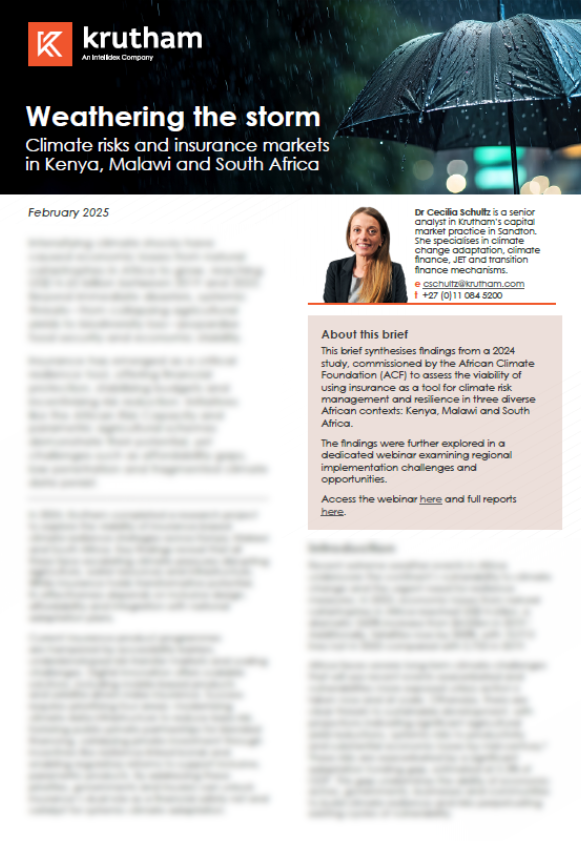
Intensifying climate shocks have escalated economic losses in Africa, with natural catastrophes causing US$14.65bn in damages between 2019 and 2023. Beyond immediate disasters, systemic threats, such as declining agricultural yields and biodiversity loss, endanger food security and economic stability. Insurance is emerging as a vital resilience tool, providing financial protection, stabilising budgets and incentivising risk reduction. Initiatives like the African Risk Capacity and parametric agricultural schemes show potential, yet challenges such as affordability gaps, low penetration and fragmented climate data remain.
In 2024, the African Climate Foundation (ACF) commissioned Krutham to research the viability of insurance-based climate resilience strategies across Kenya, Malawi and South Africa. Key findings reveal that all three countries face escalating climate pressures with the potential to disrupt agriculture, water resources and infrastructure.
Download the complete report to explore how insurance-based strategies can enhance climate resilience in Africa and drive sustainable economic growth.